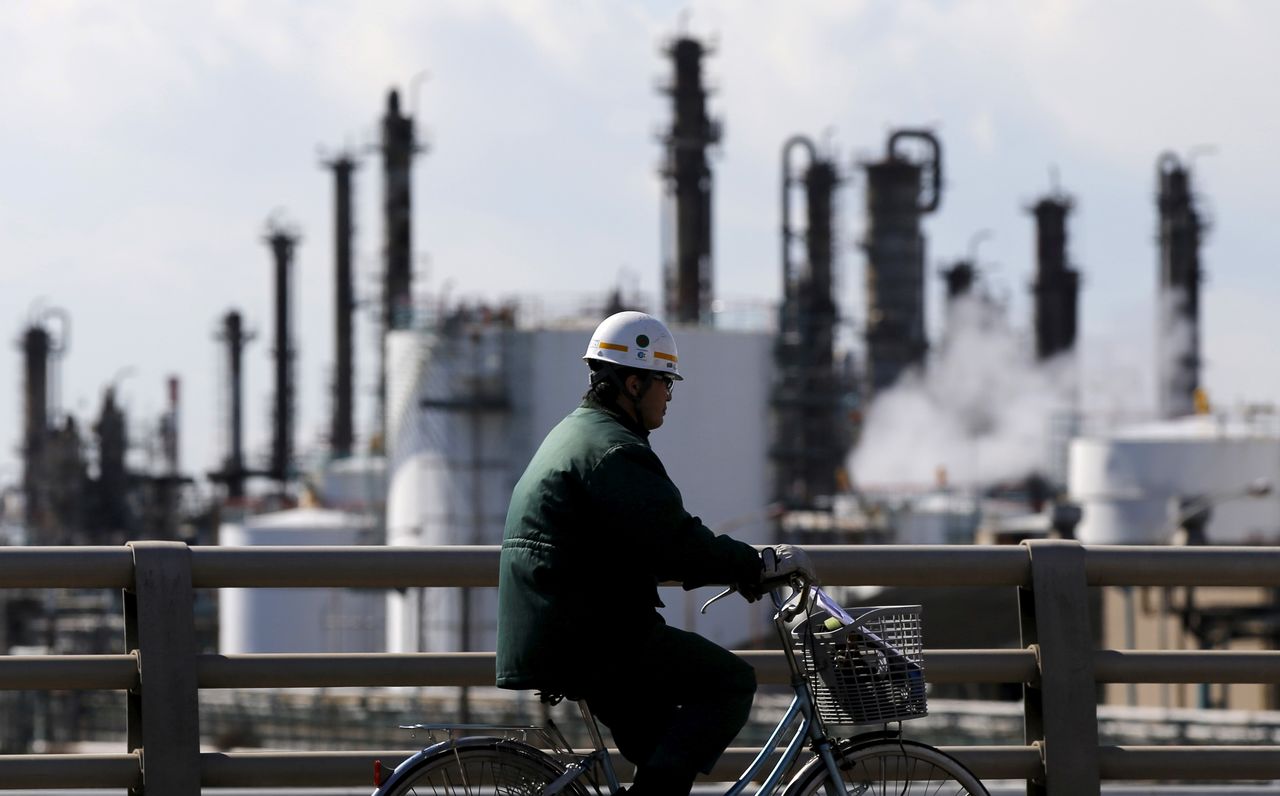Japan real wages eke out first rise in a year as COVID-19 hits prices
Newsfrom Japan
Economy- English
- 日本語
- 简体字
- 繁體字
- Français
- Español
- العربية
- Русский

FILE PHOTO: A worker cycles near a factory at the Keihin industrial zone in Kawasaki, Japan February 17, 2016. REUTERS/Toru Hanai/File Photo
By Daniel Leussink
TOKYO (Reuters) - Japan’s real wages rose for the first time in a year in February, the government said on Tuesday, largely due to prices weakening as the coronavirus pandemic continued to weigh on the economy.
The health crisis and steps taken to keep it in check are having a big impact on the world’s third-largest economy, which is expected to have contracted in the first quarter due to weakening consumer spending.
Inflation-adjusted real wages, a key measure of households’ purchasing power, rose 0.2% in February compared with the same month a year earlier, the labour ministry said on Tuesday.
It was the first rise in inflation-adjusted real wages in 12 months, after a revised 0.6% decline in January.
But nominal total cash earnings dropped 0.2% in February from a year earlier, down for the 11th straight month, following a revised 1.3% decline in January.
“Since the fall in prices was larger than the drop in wages, it (February inflation-adjusted wages) turned positive,” a health ministry official said.
The official said a relatively small number of winter bonus payments in February compared with the prior month reduced pressure on overall nominal total cash earnings, which saw their smallest decline in 11 months.
Regular pay - or base salary, which makes up most of total cash earnings and determines a wage trend - rose for the second straight month, gaining 0.4% after a downwardly revised 0.2% rise the previous month, according to the data.
Overtime pay, a key indicator of strength in corporate activity, declined 9.3% in February compared to the same month a year earlier, falling at a quicker pace than in January.
Special payments, which include winter bonuses, lost 1.0% in February after a 20.4% decline in January, which was downwardly revised from minus 12.7%.
The ministry defines “workers” as 1) those who were employed for more than one month at a company that employed more than five people, or 2) those who were employed on a daily basis or had less than a one-month contract but had worked more than 18 days during the two months before the survey was conducted, at a company that employs more than five people.
To view the full tables, see the labour ministry’s website at: http://www.mhlw.go.jp/english/database/db-l/index.html
($1 = 110.4500 yen)
(Reporting by Daniel Leussink; Editing by Hugh Lawson)